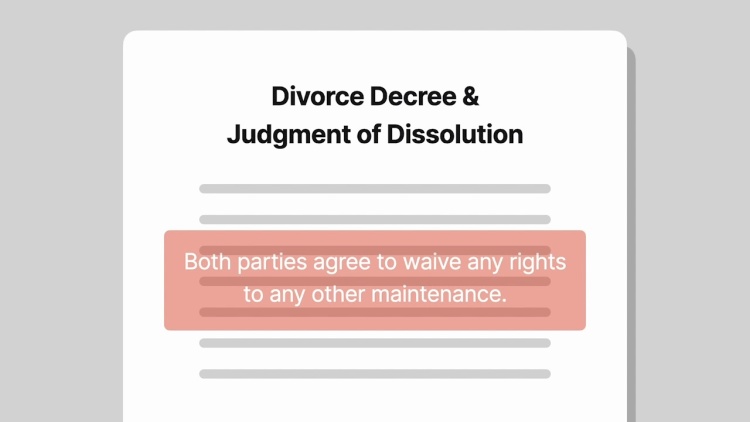Karon v. Karon
Minnesota Supreme Court
435 N.W.2d 501 (1989)
- Written by Brittany Frankel, JD
Facts
Howard Karon (plaintiff) and Frima Karon (defendant) were married for almost 30 years. Howard filed for divorce, which was granted. Included in the divorce decree was a stipulation that Howard would pay Frima alimony in the amount of $1,200 per month for six years and $600 per month for the subsequent four years. The stipulation also provided that the court was divested from having any jurisdiction to award temporary or permanent spousal maintenance to either of the parties in the future. Howard worked as a vice president of sales at a large company and made a large salary, while Frima worked various low-salary jobs. Before the rehabilitative-alimony award expired, Frima moved the court for an order modifying the maintenance award. Frima requested that the court provide her with permanent maintenance of $3,500 per month. A referee, who is an individual appointed by the district judge to preside over civil hearings, held that the court had jurisdiction to hear the modification request despite Howard's challenges to the contrary. The district court agreed and affirmed the referee's order. After hearing the motion for modification, the referee determined that Frima was entitled to a permanent maintenance award of $1,500 per month. The trial court and the court of appeals affirmed. Howard appealed.
Rule of Law
Issue
Holding and Reasoning (Yetka, J.)
Dissent (Coyne, J.)
What to do next…
Here's why 899,000 law students have relied on our case briefs:
- Written by law professors and practitioners, not other law students. 47,000 briefs, keyed to 994 casebooks. Top-notch customer support.
- The right amount of information, includes the facts, issues, rule of law, holding and reasoning, and any concurrences and dissents.
- Access in your classes, works on your mobile and tablet. Massive library of related video lessons and high quality multiple-choice questions.
- Easy to use, uniform format for every case brief. Written in plain English, not in legalese. Our briefs summarize and simplify; they don’t just repeat the court’s language.





